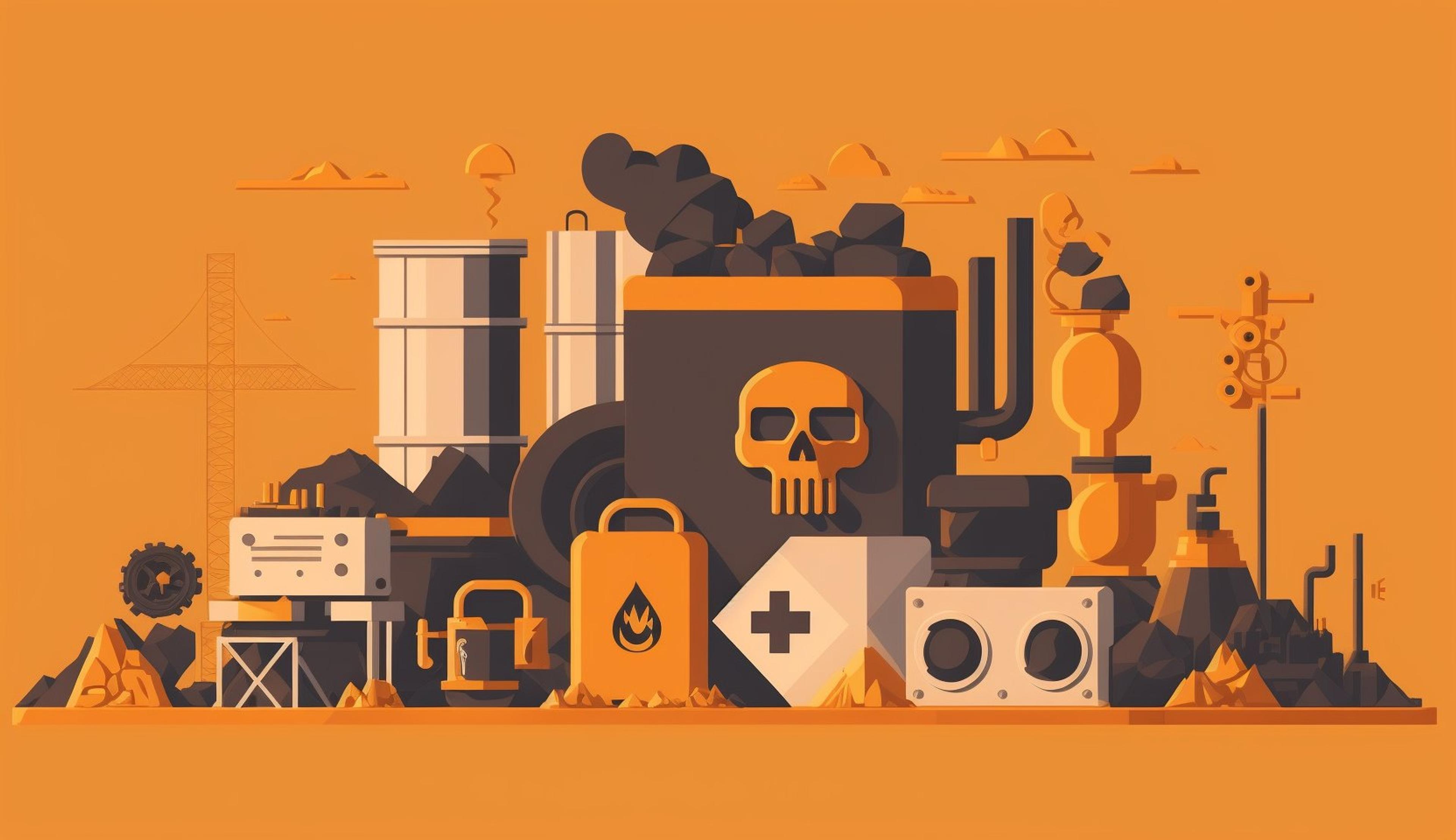Understanding Non-Renewable Resources: The Top 5 Most Commonly Used and Their Impact on Our Planet
Tue Apr 11 2023
As the world becomes more conscious of climate change and the need for sustainable development, it's essential to understand the role that non-renewable resources play in our lives. In this article, we'll explore the top five most commonly used non-renewable resources and their impact on our planet.
What Are Non-Renewable Resources?
Non-renewable resources are natural resources that cannot be replenished or regenerated in a short amount of time. Once they are used up, they are gone forever. These resources are typically extracted from the Earth through mining or drilling, and they are used as fuel or raw materials for various industries.
1. Fossil Fuels
Fossil fuels, which include coal, oil, and natural gas, are the most commonly used non-renewable resources in the world. They are formed from the remains of plants and animals that lived millions of years ago and have been compressed and transformed over time.
Impact on the Environment
The burning of fossil fuels is a leading cause of climate change, releasing vast amounts of carbon dioxide (CO2) and other greenhouse gases into the atmosphere. These gases trap heat, causing global temperatures to rise, leading to severe consequences such as sea-level rise, extreme weather events, and loss of biodiversity.
2. Nuclear Energy
Nuclear energy is derived from the radioactive decay of unstable isotopes, such as uranium and plutonium. Nuclear power plants use these isotopes to produce heat, which is then used to generate electricity.
Impact on the Environment
While nuclear energy produces significantly less CO2 emissions than fossil fuels, it does produce nuclear waste, which is highly toxic and can remain radioactive for thousands of years. The disposal and storage of nuclear waste pose serious environmental and safety concerns.
3. Metals
Metals such as iron, aluminum, and copper are essential for various industries, from construction to electronics. These metals are extracted from ores, which are non-renewable resources.
Impact on the Environment
The extraction and processing of metals contribute to air and water pollution, habitat destruction, and land degradation. Moreover, mining operations often involve the use of toxic chemicals that can contaminate surrounding ecosystems.
4. Rare Earth Elements
Rare earth elements (REEs) are a group of 17 elements that are critical for the production of many high-tech devices, including smartphones, electric vehicles, and renewable energy technologies. China currently dominates the global supply of REEs.
Impact on the Environment
The extraction and processing of REEs are associated with significant environmental and health risks due to the release of radioactive materials and the use of hazardous chemicals. Additionally, the monopolistic nature of the REE market raises concerns about resource scarcity and geopolitical tensions.
5. Phosphate Rock
Phosphate rock is a non-renewable resource used primarily in the production of fertilizers. It is essential for modern agriculture and global food security.
Impact on the Environment
Phosphate mining and processing can result in water pollution, soil degradation, and the release of greenhouse gases. Furthermore, the excessive use of phosphate-based fertilizers in agriculture contributes to eutrophication, which causes dead zones in aquatic ecosystems.
Non-Renewable Resources and the UN Sustainable Development Goals
The United Nations has established 17 Sustainable Development Goals (SDGs) to address the world's most pressing challenges, including climate change, poverty, and inequality. The responsible use and management of non-renewable resources are essential to achieving many of these goals, particularly SDG 7 (Affordable and Clean Energy), SDG 12 (Responsible Consumption and Production), and SDG 13 (Climate Action).
Moving Toward a Sustainable Future
To transition to a more sustainable future, we must reduce our reliance on non-renewable resources and focus on developing renewable alternatives. Governments, businesses, and individuals all have a role to play in this transition. For example, investing in renewable energy, promoting energy efficiency, and supporting the circular economy can help us move toward a more sustainable future.
The Global Sustainable Development Report highlights the need for urgent action to address the world's sustainability challenges. It emphasizes the importance of international cooperation and the development of innovative solutions to secure a sustainable future for all.
Securing a Sustainable Job: How You Can Make a Difference in the Battle Against Non-Renewable Resources
One way to contribute to a more sustainable world and mitigate the impact of non-renewable resources is by pursuing a career in a green job. Securing a sustainable job allows you to use your skills and expertise to help tackle pressing environmental and social challenges, such as the overconsumption of fossil fuels, unsustainable mining practices, and pollution caused by non-renewable energy resources.
At greendeed.io, you can find a wide range of job opportunities at companies working toward the SDGs and actively addressing the issues surrounding non-renewable resources. Companies like Dopper, Betteries, and Naïf Care are making strides in promoting renewable energy, developing innovative technologies, and advocating for responsible consumption. Check out their job listings to find a position that aligns with your skills and passions, and play a part in the transition from non-renewable to renewable resources.
Conclusion
Understanding the impact of non-renewable resources on our planet is crucial for addressing the challenges we face today. By making informed choices, supporting sustainable development initiatives, and pursuing careers in green industries, we can help create a more sustainable and just world for all.
Remember that every little action counts. Whether you're working for the Sustainable Development Goals or adopting more eco-friendly habits in your daily life, your efforts contribute to a brighter future. Stay informed by following the latest news and insights on greendeed.io/blog, and let's work together to make a difference.
Article updated at: Mon Apr 10 2023